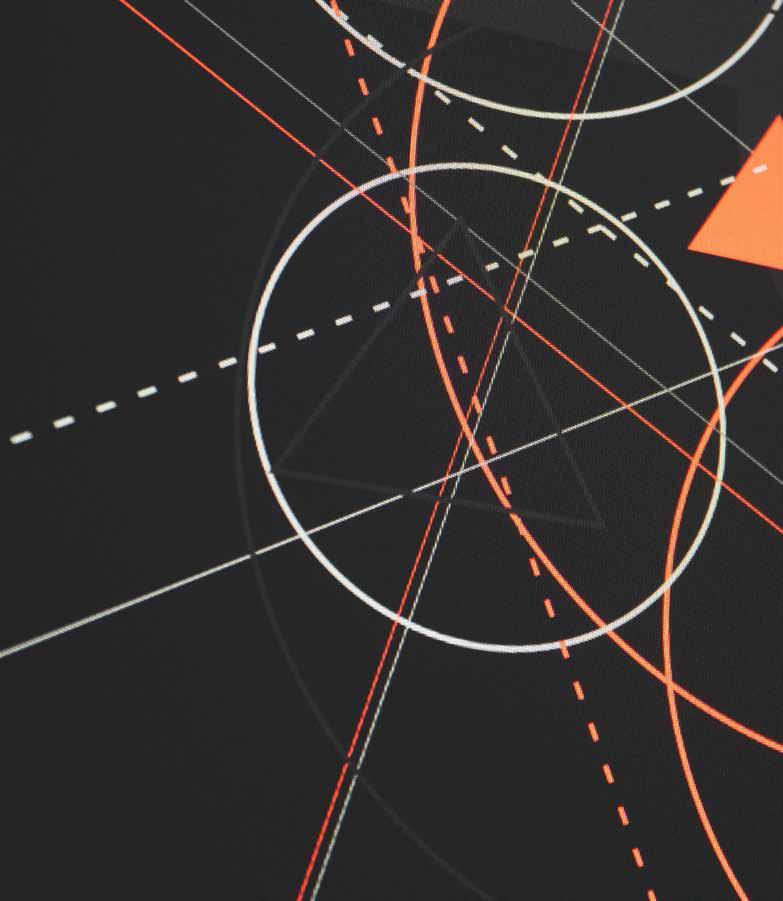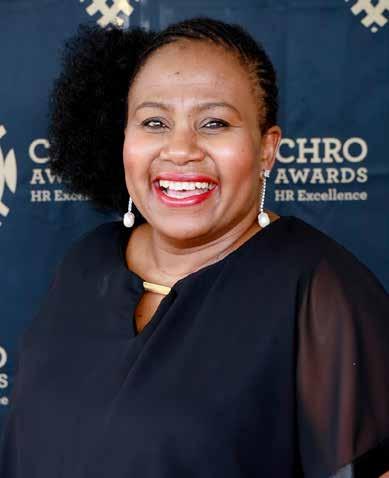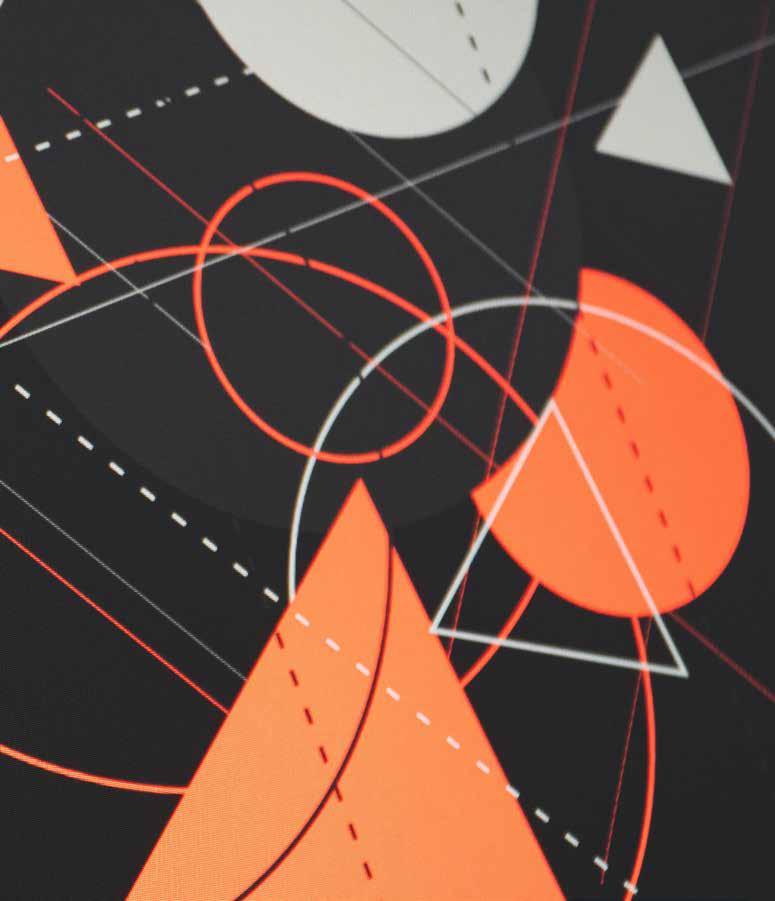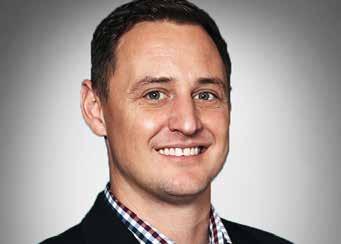
8 minute read
Meaningful inclusion fosters belonging
HR heavy hitters established that diversity and inclusion actually need to foster belonging above all else
BY ATLEHANG RAMATHESELE
Advertisement
During an invigorating HR Indaba Conversation, powered by TalentSmith Technology, HR professionals and business executives came together to examine what real inclusion looks like.
While diversity, equity and inclusion remain popular buzzwords in HR practices and general organisational culture, they are often steeped in lip service, instead of truly enhancing and uplifting the differences between employees and effectively eradicating unconscious bias. It was concluded that in order for inclusion to be meaningful, it is ultimately about creating an environment that enables people to feel valued, engaged, heard and satisfied. S’ne Magagula, CHRO at Tiger Brands, shared a fun approach to identifying the differences between diversity, inclusion and belonging, but first noted how important it is to engender a sense of belonging for everyone in an organisation. She shared the widely documented Verna Meyers’ perspective that diversity is being invited to the party, inclusion is being asked to dance, but belonging is feeling free to dance the way you want to. “When you belong, you feel free to express yourself the way you want to and you feel accepted in the organisation for expressing your individuality,” she added. S’ne expanded further by explaining that diversity is having a seat at the table, inclusion is having a voice but belonging is having that voice be heard.
Tamara Parker, CEO at Mercer Africa, mentioned that while South Africa has legislation in place to address diversity, inclusion and equity must not be left behind. “Inclusion is about the experience you have when you’re in an organisation. We all have scorecards, tick boxes and tools to show you where your diversity sits, but they won’t give you anything about inclusion,” she said.

Being different
She believes that inclusion needs to be driven from a leadership perspective. Tamara mentioned that a survey in sub-Saharan Africa indicated that 88 percent of organisations have diversity and inclusion as something on their scorecards, but only 56 percent knew how they were going to achieve it.
Thato Mmaditla, HR director at Youth Employment Service (YES), is a big proponent of strength-based coaching that helps a leader, middle manager or individual contributor to become more inclusive. YES builds awareness around the lens one comes to the workplace with and uses it to implement a coaching process.

S'ne Magagula
“When you belong, you feel free to express yourself the way you want.” - S’ne Magagula, CHRO at Tiger Brands
“People come into the workplace with an understanding of being different, but it’s more about embracing those differences to understand each other and meet each other halfway,” she said. Thato asserted that people are more inclusive when they are aware of what their values and beliefs are. “You can become more intentional about ensuring that the next person has a sense of belonging and a social identity,” she explained. Through coaching, they build self-awareness and mastery that ensures people are all collectively working towards inclusivity and belonging. Working with a youth-centric entity also enables Thato to understand the nuances of power dynamics when implementing real inclusion and the cultural implications, such as a junior professional learning that it’s okay to look a senior in the eye. She said that because at least 45 percent of the workforce in South Africa is made up of youth, and many of them come from previously disadvantaged backgrounds, it’s not possible to purely look at skills sets, but also make room for culture disparities. YES has an external coaching programme for executives and an internal programme that coaches each individual based on their strengths and talents. The methodology they adopt is about understanding what people are naturally talented in, placing them for purpose irrespective of qualifications, and looking at how to use that talent to have the necessary conversations.
Diversity spheres
Tamara said she believes it is necessary to break down control and command culture and democratise the workplace, even when phenomena like the “old boys’ club” exist.
“In organisations that have truly democratised the workplace, they are able to push accountability downward to create teams for innovation and sparking ideas, while having a leadership that’s prepared to listen to that,” she said. This filters conversations and gives opportunities to diverse groups of people, while allowing them to run with some things and be accountable for them.
It was also noted that while some of the main spheres through which diversity is measured such as gender, race, disability and sexual orientation are highly important, there are others that are overlooked, such as generational diversity. S’ne said, “We want to ensure that you have enough young people in the workforce who understand the younger demographic in the market and give us those insights without us having to do market research.” She added that skill set diversity is also crucial for optimising an organisation: “Often the temptation is to work and innovate in silos. Innovation and development are the lifeblood of business, especially to outpace competition. We need to form collaborative teams that surpass the organisation's structures and boundaries,” she said.
Tiger Brands has started a process in partnership with Deloitte to drive creation through cross-functional teams and get them to naturally spark ideas – straight through to innovation. This is to ensure that different mindsets and skill sets are there to challenge and drive each other.
It was highlighted that it is vital to unlearn unconscious biases, like how sometimes people look to women to make coffee before a meeting, and difficult conversations were needed in order to address that.
Thato explained that it is important to consider distributed leadership and drive cultural changes by ensuring that everyone in a business feels like they have a voice. She suggested real change would be driven by the acknowledgement that everyone comes into an environment with different experiences and filters – and being aware of it at all levels. Tamara acknowledged that such conversations can create discomfort, defensiveness and victimhood, but regards them to be important anyway. S’ne suggested getting a specialist to help deal with biases at a deep level.
“It is around looking at perceptions and filters that go beyond a typical conversation,” she said. All of these interactions will require maturity and an open mind. It is best to promote diversity of thought and practices and not to insist on everyone in the organisation having the same mindset and beliefs, the panellists agreed. Thato implored people to become more aware of their own values and beliefs in order to take accountability for themselves and each other.
S’ne concluded that HR’s role goes beyond finding and retaining talent, but is also about creating inspiring environments that cater to everyone, and cultures that allow everyone to thrive.
HR’S GOT TALENT The rise of the superteam, and how it will create HR rockstars

Roland Glass
TalentSmith Technology took part in the 2021 HR Indaba Conversations. In this session our Chief Business Officer, Roland Glass shared his knowledge on transforming the HR sector into human capital rockstars. How? Through the esteemed technology partners that TalentSmith Technology works so closely with: Enboarder, Starred, Cammio, and SmartRecruiters. It’s these global best-of-breed technologies, Glass explained, that give teams the opportunities to find the best talent out there, and become HR rockstars.
Our technology partners offer useful features that allow humans and software to work together as a team. This new kind of team, referred to as ‘the superteam’ by the Deloitte Human Capital Trends 2021, gives us the opportunity to pair people with technology and re-architect work in more human ways. But don’t just take our word for it. Glass used the HR Indaba platform to showcase the best-in-class features offered by our partners. Here’s a glimpse into how these can be used to form your own superteam.
1. Hiring like a rockstar: Video recruitment
Video is rapidly developing towards the default online language. Why limit video to selected parts of talent acquisition, when the entire talent journey can benefit from the power of video? One such example is the video messaging feature from our technology partner Cammio. This function allows recruiters to create video clips and share personalised video messages on social media with candidates. Candidates use a unique link to access your video message, which not only sits in a branded environment but displays your contact details right beside the video too.
The world of work has changed, and so has the way you onboard. Rockstar onboarding is not about the paperwork but rather about the employee experience. We selected Enboarder as a technology partner as it ensures that all new hires’ journeys are personalised, and really allows them the opportunity to show and share their authentic self. Features within Enboarder allow you to create moments of elevation and make people feel appreciated, both important tactics to ensure maximum engagement and a positive onboarding experience.
3. Thinking like a rockstar: Candidate and employee experience
Surveys are a useful method to gain key insights into both candidate and employee experience. But the key to encouraging engagement and high response rates is to personalise short pulse surveys. Short surveys conducted more frequently are likely to give you a better picture of how your candidates and employees feel at that specific moment. Starred software is a bespoke tool for creating such surveys that are targeted to measure through the lifecycle of the employee (not just cyclically). Remember, you want to be able to measure their experience and level of engagement at specific moments like their onboarding, off-boarding, review cycles, role changes or promotions, and Starred gives you that ability. It’s our vision at TalentSmith Technology to help you build your own superteam and in the process become the HR rockstars you were born to be.











